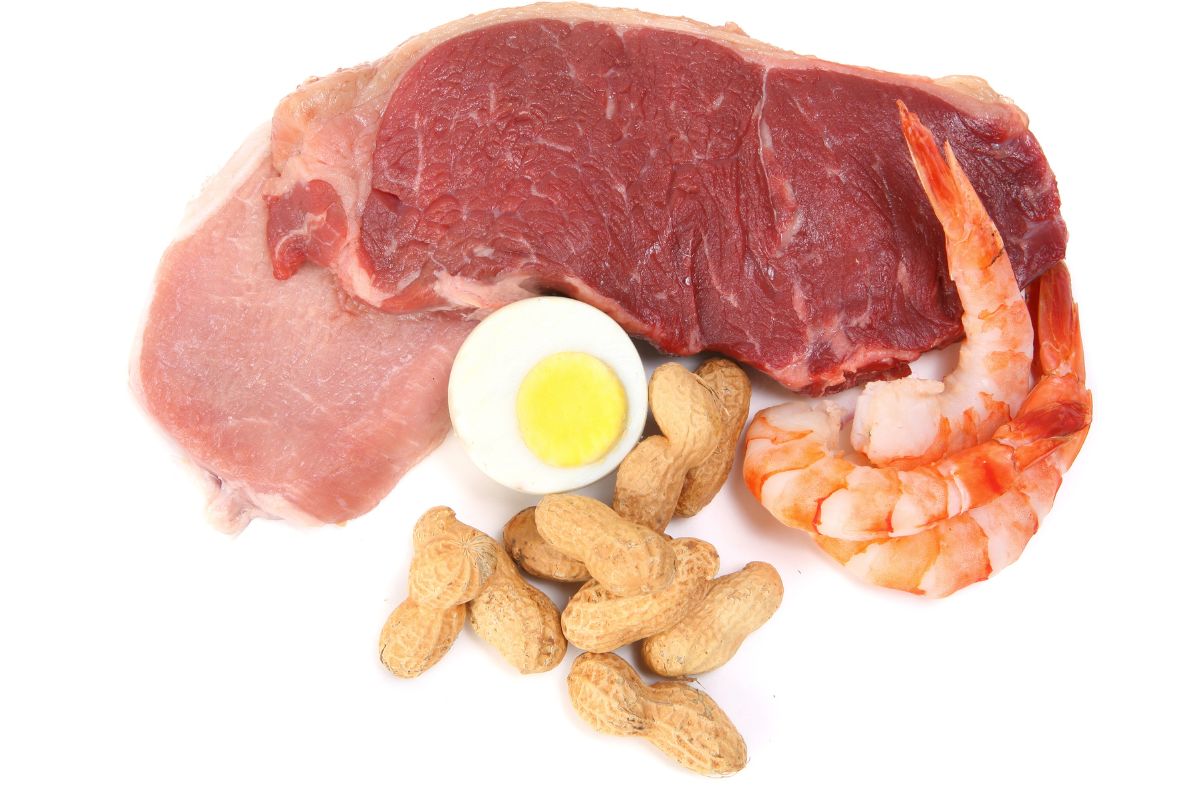Foods are divided into different categories, which helps people to better understand the structure of their diet. One of the most important food groups is formed of dairy products, such as milk, cheese, and butter.

Eggs are often thought of as dairy products, but the truth is that they do not belong to this food group. What food group do eggs belong to? Why do people assume that eggs are dairy products? Find the answers below!
Are Eggs Dairy?
No, eggs are not dairy products. The idea that eggs are classified as dairy products is a common misconception.
To explain why eggs are not considered dairy products, we must look at the definition of this food category. Dairy products are defined as being made from milk. This will include products like cheese, butter, and ice cream.
Eggs are not dairy products because they are not made from milk. Instead, they are laid by birds, including chickens, (see also: Best 19 Pheasant Recipes That Will Make Your Mouth Water)ducks, hens, quails, and emus. Most birds can’t produce milk, as they are not mammals. Consequently, eggs are not dairy products.
Additionally, eggs are safe for people to consume if they are lactose intolerant. Lactose intolerance is a condition whereby sufferers will experience unpleasant symptoms after consuming lactose. Lactose is a type of sugar found in milk and other dairy products.
However, you can still consume eggs as part of a milk-free or lactose-free diet. This is because there is no lactose found in eggs.
Why Do People Think That Eggs Are Dairy Products?
As mentioned, it is a widespread misconception that eggs are dairy products. It’s understandable why people are confused about the categorization of eggs. After all, eggs share many of the same characteristics as dairy products.
Firstly, eggs are high in protein. Many dairy products are rich in protein, such as milk and yogurt. A single egg will contain approximately 6 grams of protein.
As a result, eggs are commonly consumed by people who are attempting to increase their protein intake, such as athletes. Milk is approximately 3% protein, likewise making it a decent source of this nutrient.
Secondly, eggs are animal products. Similarly, many dairy products are derived from animals. As stated, these dairy products are made from milk.
Another reason why eggs are wrongly thought of as dairy products is that many grocery stores categorize them as dairy products. Eggs are commonly found in the dairy aisle, despite not belonging to this food category.
What Food Group Do Eggs Belong To?

Eggs are better suited to the protein food category. Eggs are packed with protein, making them one of the best sources of these macronutrients. They are a low-calorie source of protein. Eggs contain all of the amino acids that your body needs.
If you are attempting to eat more protein, it is worth adding more eggs to your diet. For example, you may be attempting to develop lean muscle mass, meaning that you will need to consume more protein.
Other foods in the protein food category include:
- Lentils
- Beans
- Seafood
- Meat, including beef and pork
- Poultry, such as chicken or turkey
- Soy products
- Seeds
- Nuts
Can You Eat Eggs On A Dairy-Free Diet?
Yes, eggs can still be consumed as part of a dairy-free diet. As stated, eggs are free from lactose. The main goal of a dairy-free diet is to avoid lactose and all dairy products.
Since eggs are not a dairy product, you can continue to eat them as part of a dairy-free diet without expiring negative side effects.
Are Eggs Healthy?

Yes, eggs are healthy. They are a particularly great addition to your diet thanks to their high protein content.
Another benefit of consuming eggs is that they are high in “good” cholesterol. Known as “High-density lipoprotein”, good cholesterol will increase when you regularly consume eggs.
This type of cholesterol will help your body to regulate other varieties of cholesterol.
Furthermore, eggs are a source of choline. This is an essential nutrient that is found in very few foods. Therefore, many people increase their intake of choline through supplements.
Choline offers a whole host of benefits, such as improving memory and enhancing brain function. Choline deficiency is quite common, even though this nutrient is vital for pregnant people.
A single egg will contain approximately 140 mg of choline, which amounts to about 25% of the daily intake.
In addition, eggs are relatively high in vitamins D and B12. Vitamin D allows the body to absorb phosphate and calcium, while vitamin B12 is required to form red blood cells.
One egg is believed to contain around 44 IU of vitamin D, which will compensate for a significant percent of your daily intake.
Thanks to their high nutritional value, it is safe for eggs to form a large part of your diet. You can even consume this superb source of protein daily if desired, making them a brilliant option for breakfast.
Frequently Asked Questions
No, eggs are not vegan. Because they are produced by various types of birds, eggs are animal products. Thus, they are not suitable for a vegan diet.
In terms of vegetarianism, many vegetarians continue to consume eggs. This is because it does not contain any animal flesh. However, some vegetarians are against the consumption of eggs. Therefore, it is entirely a personal preference.
If you are following a dairy-free diet, you should avoid all dairy products. This will include milk, cheese, butter, yogurt, sour cream, ice cream, and any baked goods that are made with milk.
Yes, it has been suggested that eggs can cause an anti-inflammatory response in your body. This is likely due to the high traces of vitamin D in eggs. This vitamin is known to reduce inflammation.
Final Thoughts
Though many people believe that eggs are dairy products, this is merely a misconception. Instead, they belong to the protein food group. While eggs share many of the same qualities as dairy products, they do not fit the description of this food group.
- Dealing With Mold on Oyster Mushrooms - April 9, 2024
- What Meat Goes With Pumpkin Ravioli? (Ravishing Ravioli Combos) - March 15, 2024
- What To Dip Cheetos In? (Crunchy Cheese Puffs Concoctions) - March 4, 2024
